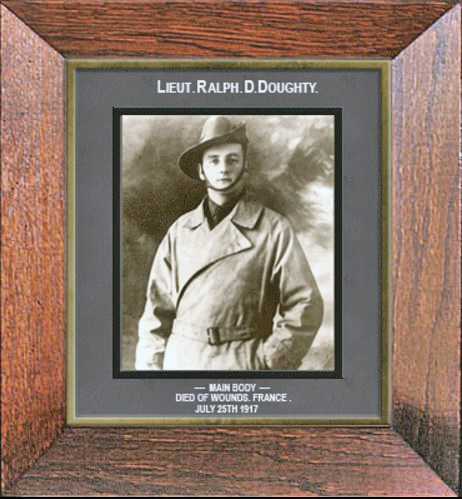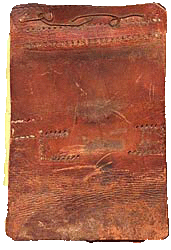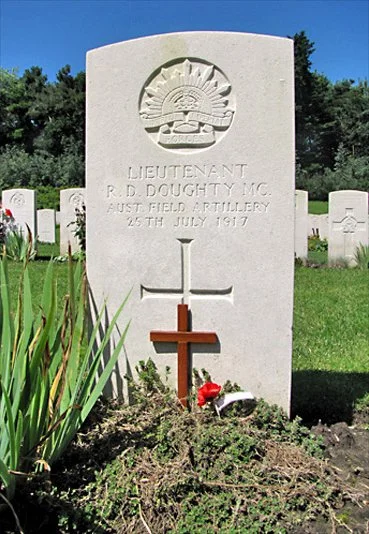The Short Life & Death of Lieutenant Ralph D. Doughty MC
It all begins with an idea. Maybe you want to launch a business. Maybe you want to turn a hobby into
Born on the 1 October 1891, in the little Taranaki town of Stratford, Ralph Dorchel Doughty, ‘being the eighth and youngest child of William and Susanna Doughty’ had spent his early years growing up in Stratford, but when he was old enough, he decided to travel to Australia, to find a job that was more rewarding and better paying, this was in 1913.
When World War One commenced Ralph having been trained and served for 5 years with the NZFA service enlisted as a gunner with the Australian Imperial Force (AIF), Field Artillery Brigade 1, Battery 2, ‘being as keen as the rest of his pals to sign up, and serve overseas’.
Ralph left the shores of his adopted country for overseas service on the 18 October 1914. His first port of call being the ‘Land of the Pharaohs’ where rigorous training and tons of good fun and High Life generally were the rules of the road‘.
Ralph landed on the inhospitable shores of the Gallipoli peninsular, for an eight months service. During this time he was able to complete three of his five day-by-day diaries. His set of diaries give a factual account of how he saw the war through his eyes, with every aspect and experience of artillery life placed onto the pages.
Diary one is visually interesting – Ralph has cut some leather from a horse saddle to use as a protective covers; he has then placed a copper wire through the top of the note pad to bind it all together (still intact even today). Diaries two and three are small pocket note pads, that Ralph would have taken with him during a day’s firing to make entries in while he was stationed at his battery gun. Diaries four and five are standard army issue (Field Service) Correspondence books (four having a hard cover, and five having a soft cover). Diary one, two and three contained entries while Ralph served in the Gallipoli campaign and diaries four and five were written in during his training in Egypt and during his campaigns in France and Belgium, this being a total of 2 years 10 months and 42 days.
After the general evacuation order was given to leave Gallipoli, Ralph returned with his battery to Egypt. They were soon on their way to France.
Diary Five began on the 12 August 1916, around sectors of the ‘The Western Front’, like Hazebrouck and Estaires, before Ralph moved with his battery over to the Belgium sectors, and onto the front lines. With the first mention of moving into Belgium being
1st September 1916 Marching orders to hand. Left Godewaersvelde at 1 pm and arrived at Reninghelst at 4. Awfully sorry to leave the billet back at Godewaersvelde. The people were really great. This place is like the proverbial pig sty, mud and slush everywhere. And not a billet, what’s more it’s raining like blazes.
He passed through the town of Ypres
2nd September, On the way we came through Ypres. Saw what’s left of the Cloth Hall and Cathedral. Both looking very pretty after their sundry bombardments. Ypres is blown to blazes generally. Must have been quite a decent city once upon a time.
Ralph had leave in London then he moved back to the front lines of Passchendaele and was to continue his duties as a gunner for the AIF, while also avoiding ‘German Taube’ reconnaissance aeroplanes, dodging sniper bullets, stun machine guns and gas shells, also rat infested shell holes filled with mud, where horses and men just sink out of sight in the slush of the shell craters. His last entry in Diary Five:
16th March 1917, Better day today. Very heavy bombardment on both left, right and centre
There may have been a sixth diary that covered the three months between this his last entry and his death in July 1917, but it has not been found. They were an eventful three months with Ralph being awarded the Military Cross on 8th May 1917:
Lieutenant Ralph Dorchel DOUGHTY?Displayed conspicuous courage and initiative when working with the Right Battalion, 1st Australian Army Brigade F.O.O. for the 3rd (Army) F.A. Brigade. He was responsible for the successful employment of the Artillery on his flank at a crucial period of the operations, and did not hesitate to push out beyond the furthest point reached by our Infantry patrols in order to secure better facilities for our observation. There can be little doubt that it was to his devotion to duty and resource, that our line in front of HERMIES owed it immunity from counter-attack, during the whole day of attack.
Commonwealth Gazette’ Date: 11 October 1917
Little information was known on how Ralph lost his life in the bloody campaign at Passchendaele, with the only information provided by the AIF war records, on how he had sustained a fatal gunshot wound to the abdomen on the 23rd July 1917, and was admitted to the 91st Field Ambulance Station. He did not recover and was laid to Rest at Coxyde Military Cemetery (Plot I, Row F, Grave No 20), Belgium.
His five diaries returned intact to our family and have now been fully transcribed and can be read in full here.
In November 2011 (94 years after Ralph’s death), I received personal information on how Ralph lost his life. This was sent to me by a gentleman in Australia who in turn found information on his fathers service for the AIF it in Ralph’s fifth diary.
This extract is from the memoir of Lieutenant Ken. S. Kingsmill, a gunner who had been standing beside Ralph when he received his fatal injury, this information was sent to my family here is New Plymouth. Lieutenant Ken S. Kingsmill returned to Australia on the 12 April 1919, and wrote his memoir in the early 1960s’.
[23 July 1917]
I went over to the control pit to see if any news had been received as to what was going on and, as I came round one side, Lieutenant Doughty came round the other and we met at the entrance to the pit. He put his hand behind me and said ‘‘‘Go on, hop in ‘Kingie’’’, which I did. He fell in behind me. A premature from one of the 12th Brigade guns just behind us had sent a splinter in his back and out his stomach. We got a stretcher, cut down the gas curtain, and sent him off to the dressing station. He was a fine man and a very well-liked Officer.
Got to bed at 4.30 a.m. on 25 July and up again at 9 a.m. Rainy and dull all day and we got word that Doughty had died at the 15th Corps Dressing Station.
[7 August 1917]
Rode into Bray Dunes again on 7 August, then on to Coxyde Military Cemetery where I planted a small wooden cross on Lieutenant Doughty’s grave and got back to wagon lines at 10.45 p.m.
Lieutenant Ken. S. Kingsmill
Donald Kingsmill (the son of Lieut Ken. S. Kingsmill) has now returned to Coxyde Military Cemetery, Belgium, where he to placed a small wooden cross on Ralph’s grave. Knowing that if the positions had been reversed 94 years ago, it may have been Ralph returning home to write his memoirs.
We can not thank the Kingsmill family enough for the above information, bringing full closure to Ralph’s story. He was a gentleman ‘like so many others thinking that they were heading over seas, to then return to a hero’s welcome’.
These are men that will not be forgotten for what they did for us all, here in our native lands.




